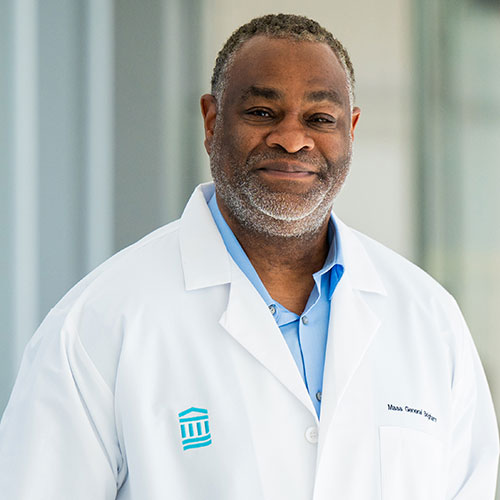-
- Find Care
-
- Visitor Information
- Find a Location
- Shuttles
- Visitor Policies
-
-
-
- Our Virtual Care Options
- Virtual Urgent Care
- Virtual Visits for Primary & Specialty Care
- Online Second Opinions
- Participate in Research
-
- Contact us
-
- For Innovators
- Commercialization Guide for Innovators
-
-
- Research News
- Alzheimer's Disease
- Artificial Intelligence
-
- Overview
-
- Overview
- Getting Started
- New to Mass General Brigham
- International Patient Services
- What Is Patient Gateway?
- Planning Your Visit
- Find a Doctor (opens link in new tab)
- Appointments
- Patient Resources
- Health & Wellness
- Flu, COVID-19, & RSV
- Billing & Insurance
- Financial Assistance
- Medicare and MassHealth ACOs
- Participate in Research
- Educational Resources
- Visitor Information
- Find a Location
- Shuttles
- Visitor Policies
- Find Care
-
- Overview
- Our Virtual Care Options
- Virtual Urgent Care
- Virtual Visits for Primary & Specialty Care
- Online Second Opinions
-
- Overview
- Participate in Research
-
- Overview
- About Innovation
- About
- Team
- News
- For Industry
- Venture Capital and Investments
- World Medical Innovation Forum (opens link in new tab)
- Featured Licensing Opportunities
- For Innovators
- Commercialization Guide for Innovators
- Contact us
-
- Overview
- Information for Researchers
- Compliance Office
- Research Cores
- Clinical Trials
- Advisory Services
- Featured Research
- Two Centuries of Breakthroughs
- Advances in Motion (opens link in new tab)
- Brigham on a Mission (opens link in new tab)
- Gene and Cell Therapy Institute
- Research News
- Alzheimer's Disease
- Artificial Intelligence
-
- Overview
-
- Overview
- Residency & fellowship programs
- Brigham and Women's Hospital
- Massachusetts General Hospital
- Mass Eye and Ear
- Newton-Wellesley Hospital
- Salem Hospital
- Integrated Mass General Brigham Programs
- Centers of Expertise
- Global & Community Health
- Health Policy & Management
- Healthcare Quality & Patient Safey
- Medical Education
- For trainees
- Prospective trainees
- Incoming trainees
- Current trainees
- Continuing Professional Development
Medications to Treat Substance Use Disorder

Despite some statistical improvements from 2022 to 2023, substance use disorder continues to be a significant problem in the United States. Both alcohol use disorder and opioid use disorder cause a significant number of deaths and serious health conditions.
Local emergency departments and community clinics can offer several effective medications for substance use disorder treatment. Gene Lambert, MD, a Mass General Brigham addiction specialist with the Addiction Consult Team at Massachusetts General Hospital, recently shared this important information during an interview with Boston television station WCVB-TV. The treatments have been shown to reduce deaths and complications from substance use disorder.
“As we talk about the ongoing opioid crisis and the challenges we face to cure this disease, I want to send my heartfelt gratitude and appreciation to all of those who are on their own personal recovery journeys, whatever that may be and whether that includes U.S. Food and Drug Administration–approved lifesaving medications for opioid use disorders or alcohol use disorders,” he said.
Opioid use disorder medications
According to the Centers for Disease Control and Prevention, there were 107,000 drug overdoses in the United States in 2023. Although that’s a 3% decrease from a record high number in 2022, the problem remains. Most of the overdoses involved opioids.
Dr. Lambert wants people with opioid addiction to know that there are treatment options readily available in their communities. People have become more aware of naloxone, an emergency medication that can reverse overdose from opioids. But he wants more people to know about the extraordinary clinical benefits of buprenorphine and methadone. Dr. Lambert noted that buprenorphine and methadone are lifesaving medications which can help people in their treatment and recovery journeys.
Buprenorphine and methadone work by diminishing the effects of physical dependence on opioids, such as cravings and withdrawal symptoms. But they don’t produce the same euphoric effect as opioids. The medications can help people control or minimize the urge to use opioids and improve the likelihood of long-term recovery. Importantly they reduce the risk of dying by more than 50%. These medications are used as a part of a comprehensive, holistic and patient-centric treatment plan which involves working with a medical provider and may include counseling and other services.
“Multiple studies have consistently shown that they decrease opioid use, opioid-associated complications, opioid-related overdose deaths, and all-cause mortality,” Dr. Lambert said. He encourages healthcare providers to learn more about prescribing buprenorphine.
Alcohol use disorder medications
The U.S. population also has high rates of alcohol-related deaths and complications from drinking alcohol over time. Each year, about 117,00 deaths occur from chronic conditions related to excessive alcohol use. Also annually, about 61,000 deaths are caused by binge drinking, including motor vehicle crashes and alcohol poisoning.
Dr. Lambert highlighted two medications approved by the U.S. Food and Drug Administration that can help manage alcohol use disorder:
- Acamprosate: Helps the brains of people, who have consumed heavy amounts of alcohol for long periods of time, to work normally again.
- Naltrexone: Blocks the parts of the brain that experience pleasure from alcohol.
“Acamprosate and naltrexone have consistently been shown to effectively decrease the amount of drinking, the amount of heavy drinking, as well as decrease the development of alcohol-related liver disease such as cirrhosis,” he said. “And they improve mortality in individuals who have developed alcohol-related liver disease.”
Treatment for drug addiction and treatment for alcohol addiction
Dr. Lambert encourages everyone to better understand the signs of addiction so they can recognize who might need support and treatment. This may include:
- Assessment of physical and mental health conditions, including a history of trauma
- Withdrawal management
- Medications to treat substance use disorder
- Counseling
- Peer recovery support, provided by persons with lived experiences
- Interventions to reduce the harms of substance use and prevent overdose
- Screening tests for health conditions related to substance use, such as hepatitis and HIV

Contributor
